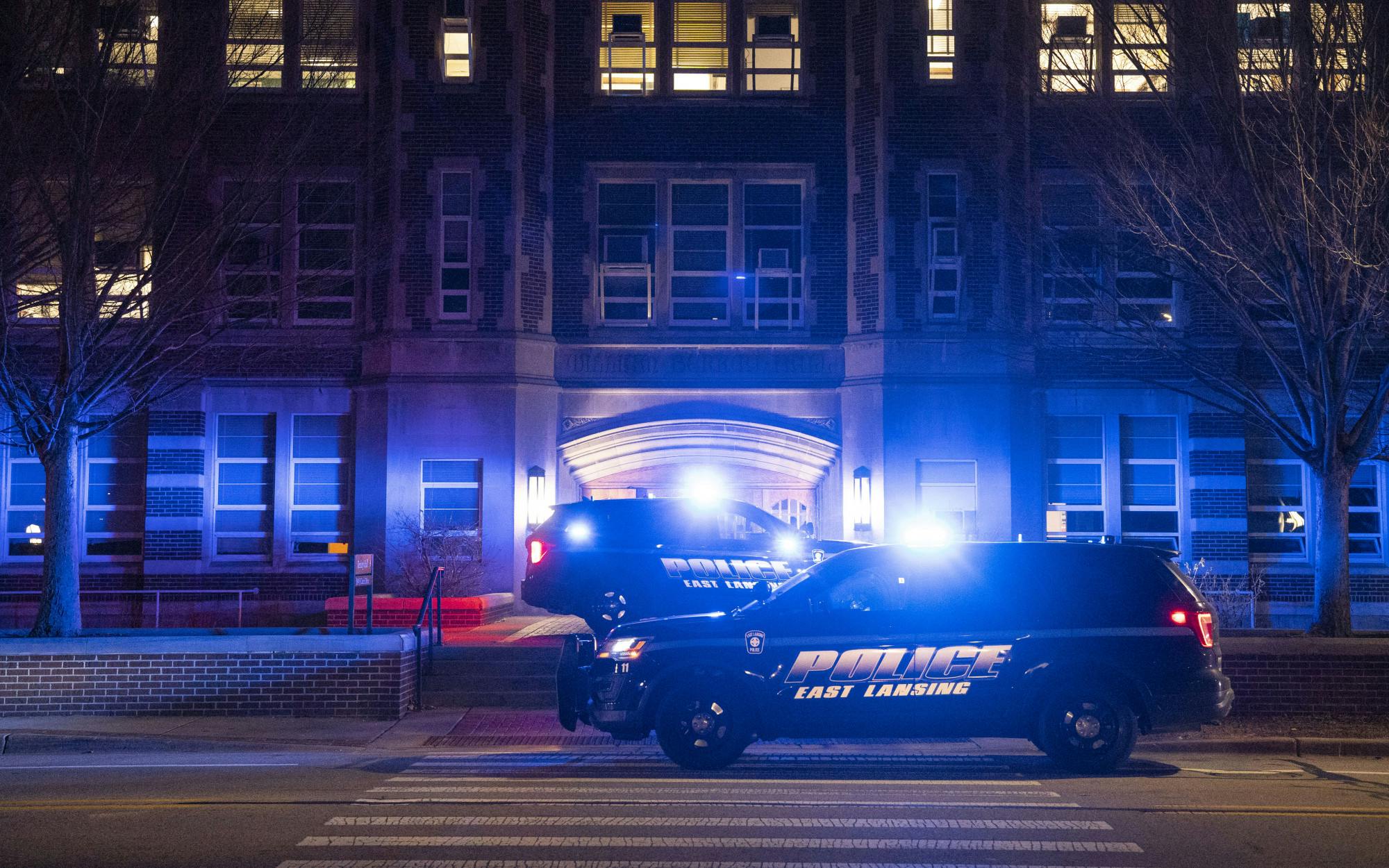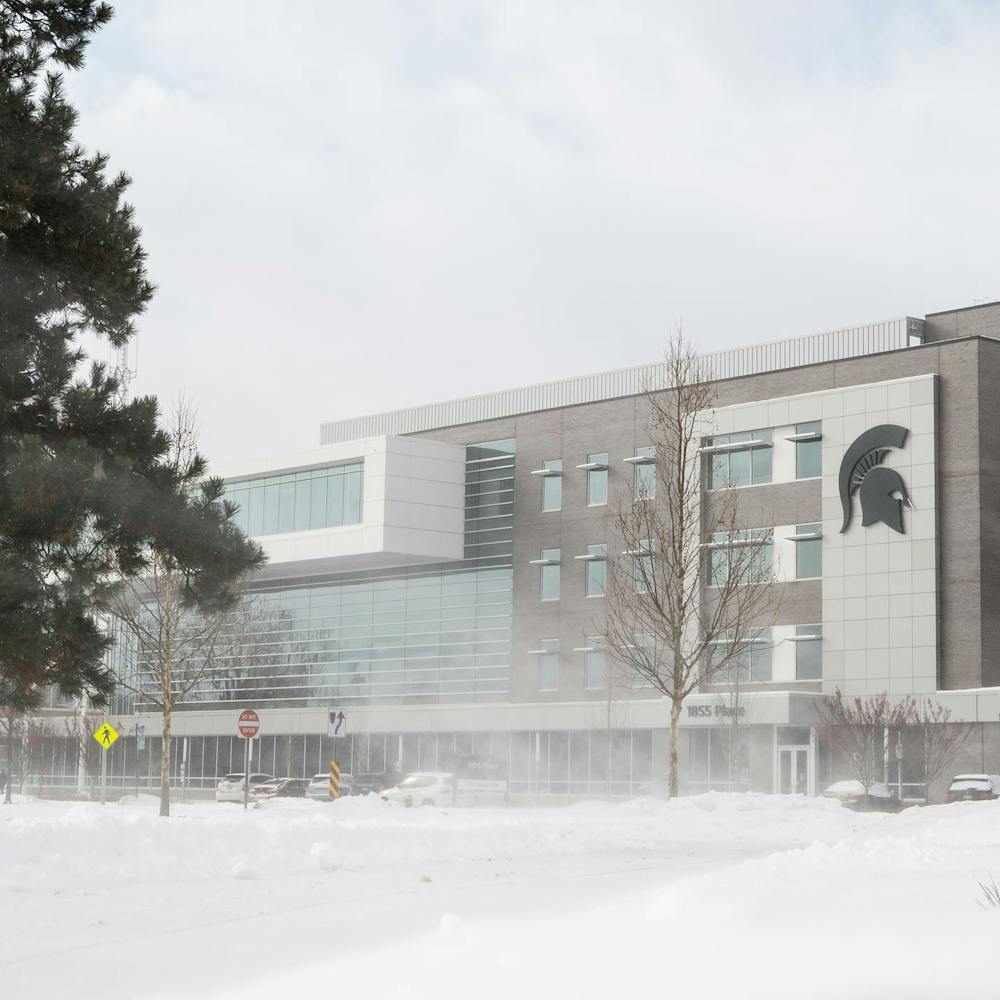The Feb. 13 campus shooting at Michigan State University impacted students and the community in many ways. For most, the grief and shock they experienced created trauma that still lingers.
Many students have realized that common noises and other daily occurrences they previously didn't pay much attention to have become triggers, or anything that causes a person to relive past trauma.
Pre-law sophomore Nicole Garrett said before the shooting, the sounds of police sirens didn’t bother her, but now, it makes her uneasy.
During last spring semester, Garrett lived in Yakeley Hall, a dormitory not far from to the MSU Union, a site of the shooting.
Due to her proximity to the event, one of her strongest memories was hearing the sirens of cop cars and ambulances making their way to the scene, changing the way she now reacts to the sound.
“Sometimes when I’m just laying in bed or doing homework I’ll hear like sirens going off, like fire department or police sirens or something, and it kind of just takes me back to being in my dorm last year, and the same feeling I had then with when I first hear the sirens,” Garrett said.
Garrett isn’t alone.
During a symposium highlighting experiences and healthcare responses to the shooting hosted by the Michigan State Medical Society Alliance, or MSMSA, education masters student and basketball player Stephen Izzo shared that he continuously heard sirens during his sleep for months following the event.
“My ears were ringing, but it only sounded like police sirens,” Izzo said.
Garrett said it isn’t just sirens that remind her of Feb. 13, but also emergency alerts she gets on her phone.
“Whenever I get a notification from like campus security, I get freaked out or I always think back to that time when we first got the security alert and being so careful and texting my family,” Garrett said. “It’s just not a fun experience to go back to and to wonder, ‘What’s happening on campus now?'”
Even though some time has passed, Garrett said, the anxiety she gets when seeing or hearing these triggers has stayed consistent.
“You always think like, ‘Oh, it can never happen twice,’ but honestly, with the way things are right now, maybe it could happen again,” Garrett said.
Journalism junior Olivia Ogle was also in close proximity to the shooting and heard gunshots from her apartment on M.A.C Ave.
“I walked into my apartment, and I was walking up the stairs and I could hear the gunshots," Ogle said. "I didn’t think it was that at first, but I still ran up the stairs and started crying and that’s when I finally saw the email and realized what it was."
Ever since that night, whenever Ogle had to walk the stairs to her apartment, she would feel scared and run up as fast as she could.
Ogle added that hearing the shots that night has made her hyper aware of loud noises in the area, something she typically wasn’t fazed by due to living on a busy street.
“(Now) when my roommate slams a pan down on the table or slams a door, I jump for sure,” Ogle said.
Ogle said after being home over summer break, she feels that with the fresh start to the school year, she doesn’t worries as much.
Journalism sophomore Charlotte Terbrack also developed a sensitivity to loud noises; anytime she heard a door slam it was "nerve wracking."
Support student media!
Please consider donating to The State News and help fund the future of journalism.
Terback lived on the first floor of Hubbard Hall and didn’t return to campus until weeks after the shooting because she didn’t feel safe. She said the new door locks in place has made the transition back easier.
Terbrack also changed her routine after the shooting, getting home earlier, never walking alone and closing the blinds in her dorm to feel more safe.
Although it has gotten better over time, unexpected situations have come up that remind her of what happened.
Terbrack works at the MSU Main library and recently completed an annual security training, watching a video depicting what to do in the scenario of an active shooter. The video affected her significantly, more than she thought it would, and brought up scary memories, she said.
For those struggling with trauma or mental health and are seeking help, MSU offers counseling services that can be scheduled at caps.msu.edu and their crisis line can be reached at 517-355-8270.
Discussion
Share and discuss “MSU students say sirens, safety alerts can be triggering following campus shooting” on social media.







